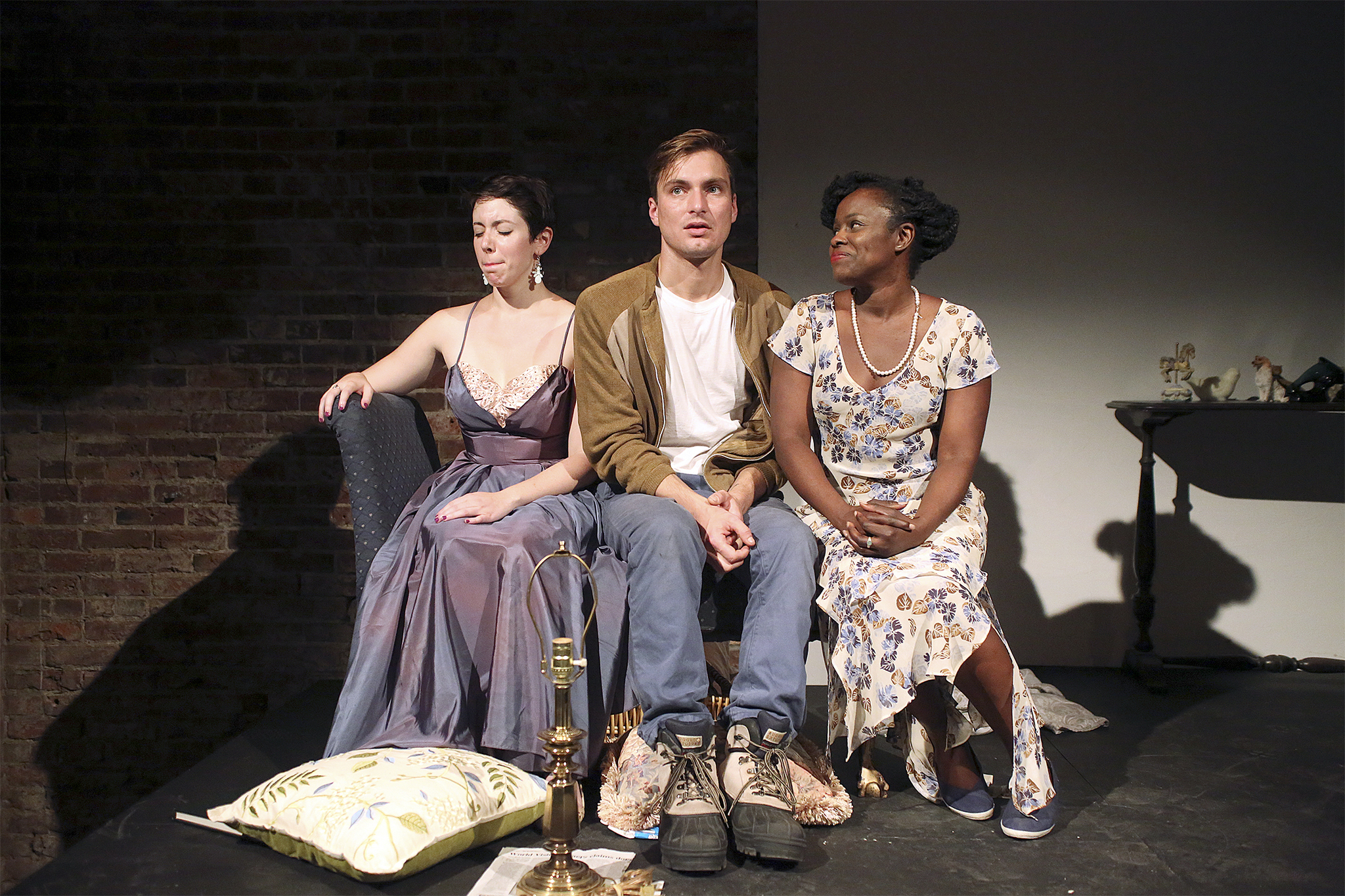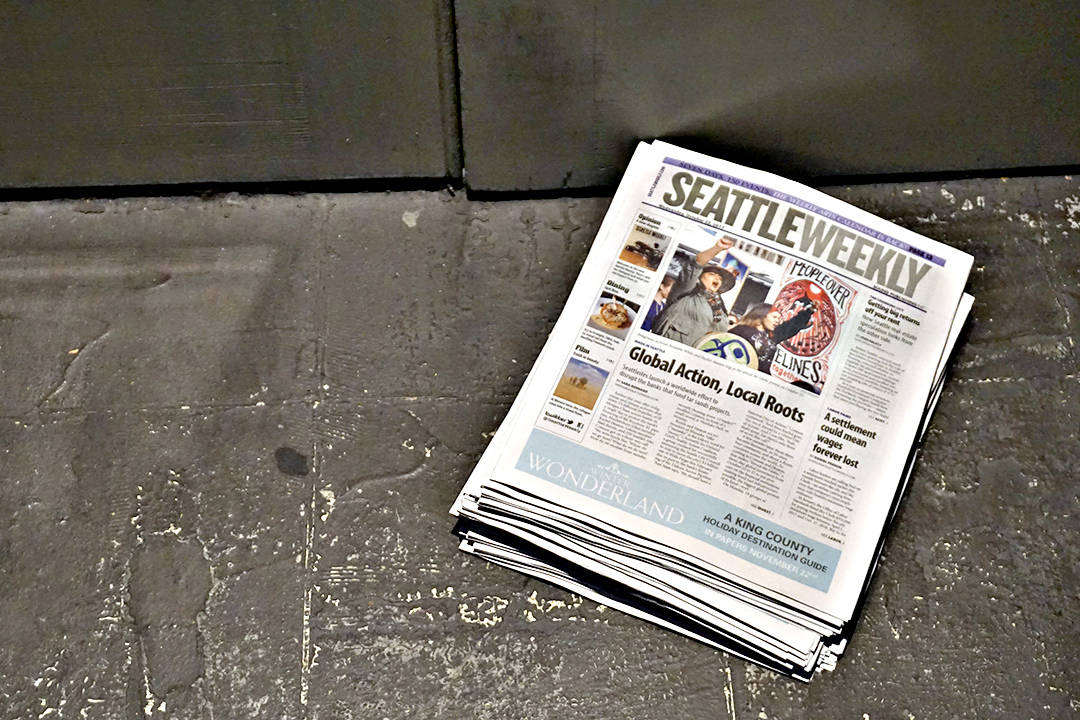When she broke onto the international stage in 2014, Australian pop singer Sia brought a new take on an enduring figure. Dressed in a distinctive blonde wig and a nude singlet, this character—whether played by 12-year-old dancer Maddie Ziegler or comic actor Kristin Wiig—is a picture of repression, often shown trapped or caged and prone to lashing out with elbows and fists and stunning choreography. She shows up in the singer’s stage show and in all her videos, a very modern representation for a kind of muted escape. “I’m gonna live like tomorrow doesn’t exist,” Sia sings in “Chandelier,” the single that introduced the character. “Like it doesn’t exist, I’m gonna fly like a bird through the night, feel my tears as they dry.”
It makes perfect sense, then, for Laura Wingfield, the isolated character at the center of The Glass Menagerie, to don a similar blonde wig, in the early moments of the current Café Nordo/The Williams Project co-production, and perform that same choreographed struggle. It is one of a number of bold choices by director Ryan Purcell, whose updates to Tennessee Williams’ classic include a modernized wardrobe for Laura and the addition of contemporary pop, replacing the gentle waltzes that populated the interior life of the beleaguered adult daughter with headphones and hits from Rihanna and Justin Bieber. It is also a risky move in a staging that has retained Williams’ original World War II-era dialogue; as often as the soundtrack connects the 70-year-old play to modern life, this production falters from the occasional cognitive dissonance.
It’s a shame, because Williams’ play is on its own a timeless American tale of promise, desperation, and slipping hope. Holding onto that hope is Amanda Wingfield (a frantic Nancy Moricette), a Southern matriarch whose husband left long ago and whose adult children are both struggling with her expectations. Tom, the narrator (a mischievous Grant Chapman), is balancing a miserable day job with late, drunken nights at the local movie house, while Laura (a shrinking Elise LeBreton) is threatening to turn into an old maid as she wastes away her days listening to music and attending to the titular collection of ornamental animals. The play arrives at a culminating moment in the family’s life, with the promise of a rare gentleman caller for Laura.
Uneven individual performances and Purcell’s directorial decisions create some deep disconnects—you might wonder what all these characters are doing in the same decade, much less the same house—but when these actors are forced to interact, the performances are powerful, delivering the deep pathos that Williams intended with devastating nuance. Though something of a stumble, the evening speaks well for The Williams Project, which wowed audiences earlier this summer with a series of performances of James Baldwin’s Blues for Mister Charlie in area churches.
Just as those hallowed locations helped shape that show, the unconventional choice to pair with Café Nordo here has some unsettling and stunning consequences. Between scenes of a family’s unravelling, guests are treated to a pleasing—if somewhat salty—Southern menu that includes greens, pot roast, and cornbread. A large family table in the middle of the room is used both for audience seating and as the center of the action during the play’s culminating scene. The vibe is that of a Thanksgiving dinner gone horribly wrong. If you are into that sort of thing—which I, personally, am—then the results are delicious. But if you prefer not to sit next to a mother as she loses her grip on her family, maybe request a side table.
Yet the play is at its best when it is not committed to these conceptual contortions—such as the scene, late in Act 2, in which gentleman caller Jim O’Connor (a preternaturally buoyant Leicester Landon) commiserates with and then tries to inspire Laura to break out of her shell. Here there is no escape for Laura, no song in which she can lose herself, and the pathos is unyielding.
mbaumgarten@seattleweekly.com








